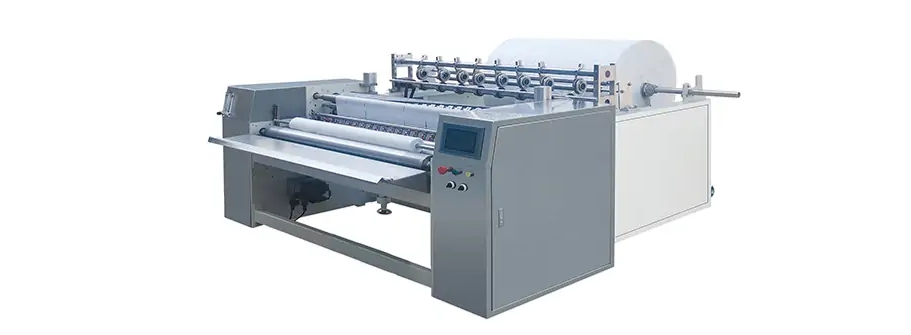Air filtration plays a crucial role in wet tissue equipment to maintain a clean and controlled manufacturing environment, protect product quality, ensure worker safety, and comply with regulatory requirements.
Contaminant Removal: Wet tissue manufacturing processes generate airborne contaminants such as dust, fibers, lint, and particulate matter from raw materials, machinery, and production activities. Air filtration systems capture and remove these contaminants from the air to prevent them from settling on surfaces, machinery, or finished products, which could compromise product quality or hygiene.
Cleanroom Compliance: In wet tissue manufacturing facilities, particularly those producing sensitive or sterile products, air filtration is essential for maintaining cleanroom conditions. High-efficiency particulate air (HEPA) filters or ultra-low particulate air (ULPA) filters are used to remove airborne particles and microorganisms to meet cleanliness standards and minimize the risk of product contamination.
Worker Health and Safety: Airborne contaminants generated during wet tissue manufacturing processes can pose health risks to workers, including respiratory irritation, allergies, and occupational diseases. Proper air filtration helps protect the health and safety of workers by reducing exposure to airborne pollutants and maintaining indoor air quality within acceptable limits.
Equipment Protection: Airborne contaminants can also affect the performance and lifespan of wet tissue manufacturing equipment by accumulating on machinery components, filters, sensors, and control systems. Air filtration systems prevent the ingress of contaminants into sensitive equipment, minimizing the risk of mechanical failures, maintenance issues, and downtime.
Regulatory Compliance: Regulatory agencies, such as the Occupational Safety and Health Administration (OSHA) and the Environmental Protection Agency (EPA), may impose air quality standards and regulations to protect worker health and minimize environmental pollution. Wet tissue equipment must comply with these regulations by implementing appropriate air filtration systems and monitoring air quality to ensure compliance.
Product Quality Assurance: Airborne contaminants can directly impact the quality, purity, and safety of wet tissue products by introducing foreign particles, microbes, or allergens. Air filtration systems help maintain a clean and controlled manufacturing environment, reducing the risk of product defects, contamination incidents, or recalls.
Process Efficiency: Clean air is essential for maintaining consistent manufacturing processes, minimizing downtime, and optimizing production efficiency. Air filtration systems prevent the accumulation of airborne contaminants that could interfere with production equipment, sensors, or controls, ensuring smooth operation and reliable performance.
Overall, air filtration plays a critical role in wet tissue equipment by ensuring a clean and controlled manufacturing environment, protecting product quality and safety, safeguarding worker health, and facilitating compliance with regulatory requirements. By investing in effective air filtration systems and maintenance practices, wet tissue manufacturers can optimize production processes, reduce risks, and enhance overall operational performance.

Copyright:@2020-2021
Comments Please sign in or sign up to post.
0
0 of 500 characters used